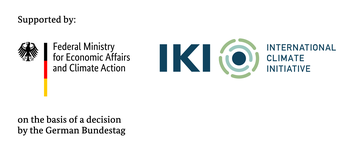Policy Framework
![[tpl_image_alt] itpl_image_alt](https://www.copalliance.org/imglib/icons/policy.svg)
A comprehensive set of policies, both on international and national level, can promote sustainable ODS/HFC banks management and contribute to cutting emissions.
A clear policy framework sets boundaries and provides a clear indication of preferred behavior for management options for stakeholders. It can help overcoming and removing well-known barriers through concerted action, e.g. by distributing responsibilities to market proponents, ideally monitoring and sanctioning those who do not follow the regulatory obligations. This includes a broad range of policies from accounting principles and market guidance to a robust monitoring system to ensure compliance. For an effective management of refrigerants and foams at end-of-life, suitable policy measures are required like venting bans or mandatory recovery.
Activities
Since the start, COPA has been jointly working with members and experts on identifying and developing policy interventions suitable for GHG mitigation measures in the ODS and HFC banks sector. COPA has exchanged with experts and published reports, contributed to workshops and side-events, organised member study tours and much more. The COPA policy activities can be clustered in the below thematics areas:
- Awareness and Impact of International agreements enforcing and regulating ODS and HFC banks management, such as the Vienna Convention for the Protection of the Ozone Layer (1985), the Montreal Protocol (MP, 1987) on Substances that Deplete the Ozone Layer and its Kigali Amendment (2016). The Basel Convention on the Control of Transboundary Movements of Hazardous Wastes and their Disposal (1989) and the Paris Agreement, a legally binding international treaty on climate change adopted 2015, also bring important regulations and incentives for a sustainable LRM policy framework.
- National and domestic policies must align with the international and global treaties, while taking the local context into account, when implementing regulations supporting and incentivicing sustainable ODS and HFC bank management. Implementing import quotas, establishing methodolgies for national inventories and reporting to different international treaties can be challenging for countries, especially for Article 5 countries under MP.
- Extended Producer Responsibility (EPR) is an acknowledged producer-pay policy, which often contain a financial mechanism incentivizing efficient waste and life-management systems paid for by the producer sector.
- Gender equality: The refrigeration and air conditioning sector (RAC) has an increasing role in ensuring sustainable livelihoods, including safe access to food and health. However, women are underrepresented in the sector, with participation ranging from 8-30% in different regions. Being committed to promote gender equality in end-of-life-management of refrigerants, COPA has organised dedicated awareness raising workshops and also contributed presentations and experts to side-events and workshops at high level conferences.
policy Working Group
Representing one of the core processes for a sustainable ODS and HFC bank management identified by COPA, the Thematic Working Group on Policy Framework brings together interested COPA Members to jointly work on identifying and developing policy interventions suitable for GHG mitigation measures.
Click the link below for more information about the COPA TWG on Policy Framework:
More information
